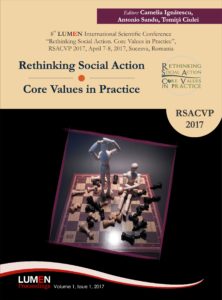The ‘Fallen Woman’ Motif in Two Plays by Oscar Wilde
The ‘Fallen Woman’ Motif in Two Plays by Oscar Wilde
Author(s): Nicoleta-Mariana Iftimie
Subject(s): Essay|Book Review |Scientific Life
Published by: Editura Lumen, Asociatia Lumen
Keywords: Lady Windermere’s Fan; A Woman of No Importance; the fallen woman; the shameful secret; motherhood.
Summary/Abstract: In order to place Oscar Wilde’s interpretation of gender stereotypes and gender roles in a proper context, we should view it against the doctrine of the ‘separation of spheres’, which was prevalent in Victorian England. According to this doctrine, a woman was restricted within the confines of the domestic or private sphere, being attributed the roles of wife and mother. Women who conformed to the ideal wife and mother stereotype were also eulogized on stage, while those who departed from the norm were regarded as outcasts and were shut off from fashionable society. The ‘fallen woman’ motif is apparent in Wilde’s society comedies. The characters that seem to embody this stereotype are Mrs. Erlynne in “Lady Windermere’s Fan” and Mrs. Arbuthnot in “A Woman of No Importance.” Each of them tries to hide a ‘shameful secret’: Mrs. Erlynne, the apparent homewrecker and seductress, wants to conceal her former abandonment of husband and child in favour of a lover who abandoned her later on; Mrs Arbuthnot, the stern woman and dutiful mother, tries to conceal the fact that she had been seduced by Lord Illingworth in her youth and had given birth to an illegitimate son. This study focuses on the two characters mentioned above in order to show the way in which Wilde exploited conventional gender roles and stereotypes, by playing the double game of conforming to and at the same time departing from expected conventions.
Book: Rethinking Social Action. Core Values in Practice
- Page Range: 340-352
- Page Count: 13
- Publication Year: 2017
- Language: English
- Content File-PDF

